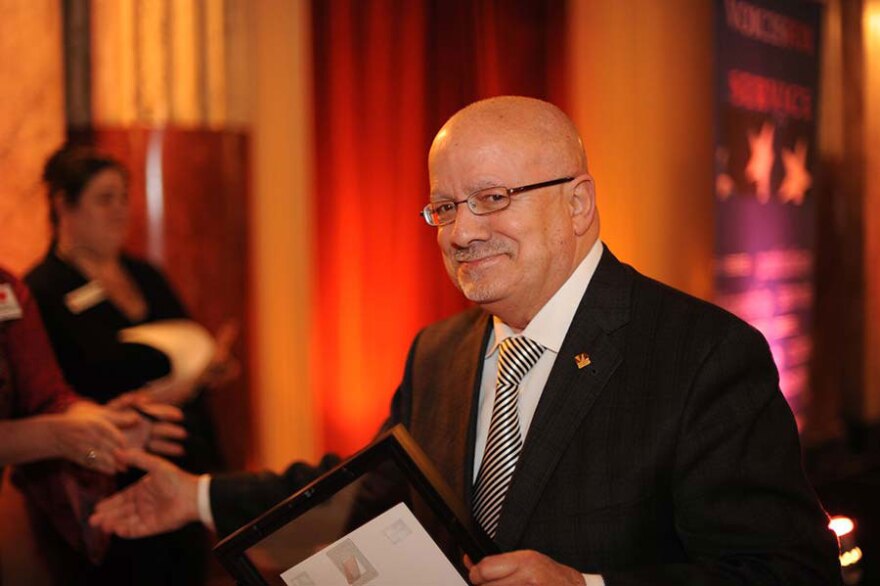Eduardo Padrón's first role at Miami Dade College was student. In August, he will resign from the role he has played for the past 24 years -- president of the school.
As he prepares to leave in August, state funding for state colleges is under pressure, the low unemployment rate has reduced enrollment, the nation's debate over immigration has affected students, and the adjunct faculty is voting on whether to unionize.
You can read more on the unionization effort, including Padrón's accusations against organizers, here.
State funding
As state funding for Florida’s public universities has increased steadily, funding for state colleges hasn’t. State colleges include schools like Broward College, Palm Beach State College, Florida Keys Community College and Miami Dade College. State spending on those institutions is about the same this year as it was two years ago -- $1.2 billion. Over the past five years, state college funding is up 10 percent. State revenues directed to public universities is up 25 percent over the same five years.
The state Legislature has favored university spending in recent years, according to Padrón."The past two years for our colleges were not good," he says.
He argues that state universities serve a fraction of the number of students that attend state colleges like Miami Dade College and are "more selective" in their admissions process. "Those students are going to succeed in spite of the university. When you creamed the crop, you just get the best of the best."
He'd like to see what he calls a "a fair distribution of resources" between the institutions. He defined that further as a "level playing field" acknowledging that state college students often work part of full time out of necessity.
"We are the workforce development agency of of the state of Florida. We're training the people for the jobs being created."
Florida's 28 state colleges and 12 public universities have been at odds in years past over four-year degrees. In 2014, the colleges were prohibited by the Legislature for one year from creating new four-year programs.
Padrón rejects the charge that colleges are competing with the universities. "Honestly, I don't see the issue because we are not offering wholesale baccalaureates. We're being very careful in terms of what we offer. All of them are workforce-oriented baccalaureates. These are programs to really prepare students for jobs."
Enrollment
Padrón points to the strong job market for a drop in student enrollment at Miami Dade College. According to annual state data, total student enrollment hit a high of over 145,000 students in 2010, just at the economy was pulling out of the Great Recession. "When the economy is good, students get better jobs. They work more hours," he says.
Students at state colleges are getting slightly younger. According to state data, the average age was 26 years old in 2013. By 2016, that had dropped by one year. "We are seeing the (student) population getting younger." He credits education quality and cost as two drivers.
Immigration
Padrón does not think the Trump Administration's crackdown on undocumented immigration has hurt enrollment. Still, he sees the effect of the divisive immigration debate on students. "The students are living under fear. The students do not know what's going to happen tomorrow when they are ready to leave home to come to school."
Despite that uncertainty for some, such as students subject to the Deferred Action for Childhood Arrivals program, Padrón has not felt the need to declare Miami Dade College campuses as sanctuary campuses. In 2017, Miami Dade County Public School Board repeated its support for schools to be "safe havens" board member Lubby Navarro said at the time.




